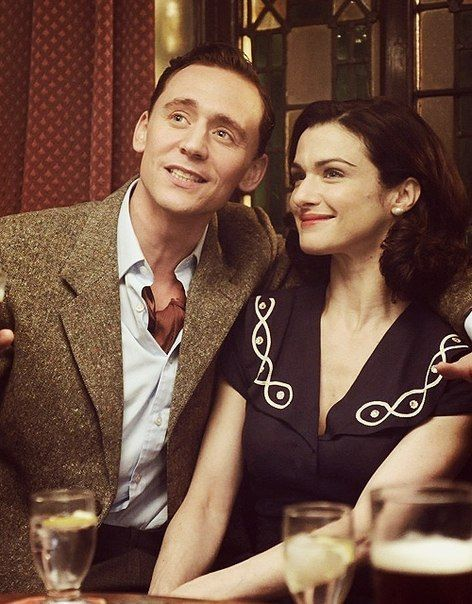The Deep Blue Sea: More Than Meets the Eye
At its surface, “The Deep Blue Sea” appears to be a tragic love story centered around an extramarital affair. However, a deeper analysis reveals the film transcends this simplistic description by using the romance as a lens to explore complex themes of female desire, mental health, societal expectations, and the destructive nature of obsession. Through phenomenal performances and nuanced storytelling, directors Terence Davies and screenwriter Terence Rattigan craft a rich, thought-provoking work that delves far beyond the surface level romance.
Focus on Female Desire and Desperation
One of the film’s central focuses is on exploring the emotional turmoil and desperation experienced by the female protagonist, Hester Collyer, played brilliantly by Rachel Weisz. In the opening scenes, we learn Hester is trapped in a loveless marriage to a much older judge, Sir William Collyer. The marriage provides financial stability and social standing, but leaves Hester emotionally unfulfilled. It’s in this context that her passionate affair with young ex-RAF pilot Freddie Page, portrayed intensely by Tom Hiddleston, must be understood.
Far from a simple romance, Hester’s relationship with Freddie represents a desperate grasp for passion, intimacy and fulfillment lacking in her marriage. As the film progresses, we see how the affair temporarily lifts Hester out of her depressive state but also fuels self-destructive tendencies. In one heartbreaking scene, Hester tearfully tells Freddie “you’ve made me feel alive again” – highlighting how the relationship fulfills a deep emotional need rather than superficial infatuation.
Through Weisz’s raw, nuanced performance, we feel the depth of Hester’s loneliness, desperation and longing for real connection. The film refuses to judge Hester’s choices, instead inviting viewers to understand her perspective and walk in her shoes. In doing so, it provides insightful commentary on female agency, desire and the social constraints women faced in a male-dominated post-war society. Hester’s character acts as a vessel to explore these complex themes in a thoughtful, non-didactic manner.
Exploration of Mental Health
Interwoven with the central love story are subtle hints that both Hester and Freddie struggle with underlying mental health issues. Freddie’s reckless behavior and thrill-seeking are suggested to stem from trauma experienced in the war. Meanwhile, Hester’s deep depression and two suicide attempts point towards pre-existing psychological struggles. The film refrains from explicit diagnosis, but the characters’ emotional fragility and self-destructive tendencies are clearly shown to go beyond fleeting heartbreak.
In a time when discussions of mental health were even more stigmatized than today, “The Deep Blue Sea” shows courage in touching on these issues. It presents a realistic, nuanced portrayal of how trauma and emotional distress can influence relationships and decision making. Davies directs with sensitivity, inviting empathy for characters whose actions may otherwise be misjudged. Overall, the film offers an early exploration of how psychology impacts human experiences and behaviors – adding thoughtful depth beyond mere romance.
Social Commentary
While focusing on intensely personal relationships, “The Deep Blue Sea” also functions as subtle social commentary. It’s set in 1950s post-war Britain, when societal norms still strongly emphasized traditional gender roles and class structures. Hester’s defiance of the expectations placed on wives to be dutiful, obedient and emotionally repressed serves as a quiet critique of such limitations.
Her choices, especially leaving her wealthy husband for a lower-class lover, would have been scandalous at the time. Yet the film invites understanding rather than judgment. It highlights how socially prescribed roles can constrain human fulfillment if forced upon unwilling individuals. Hester emerges as a complex, compassionately portrayed woman ahead of her time – willing to risk all for emotional freedom rather than settle for an empty life of conformity.
In this way, Davies and Rattigan craft more than a period piece. They tap into timely commentary still relevant today regarding gender, class, and the personal costs of rigid societal norms. Hester acts as a vessel to explore these thought-provoking themes, imbuing what could be a simple love story with insightful social perspective.
Destructive Nature of Obsession
While Hester and Freddie’s passion lifts them temporarily from depression, “The Deep Blue Sea” presents a sobering portrayal of love’s destructive potential when taken to an obsessive extreme. The relationship is far from idealized or romanticized. As their affair intensifies, so too does the self-destruction and recklessness it fuels in both characters.
A particularly impactful scene shows Hester and Freddie nearly burning down her home in a drunken stupor, highlighting how their all-consuming passion eclipses rationality and safety. Their downward spirals ultimately stem from prioritizing fleeting romance over stability, responsibility and self-care. The film serves as a cautionary tale of love’s dark side when it becomes the sole focus in one’s life, obliterating other priorities.
By the climax, both characters have sacrificed nearly everything in reckless pursuit of their affair. The shattering conclusion drives home how even the most intense passion is ultimately unsustainable without foundation or balance. Davies directs with a somber, unflinching eye to immerse viewers in the gripping emotional journey – and important lessons – of Hester and Freddie’s doomed relationship.
The Power of Performance
What elevates “The Deep Blue Sea” from a thoughtful drama to a cinematic tour de force are the phenomenal lead performances by Rachel Weisz and Tom Hiddleston. Through nuanced facial expressions, body language and emotional vulnerability, both actors bring an intensely human quality to their complex characters.
Weisz delivers a raw, fearless performance as Hester – laying bare the character’s innermost turmoil, longing and self-destructive tendencies with heart-wrenching authenticity. Meanwhile, Hiddleston imbues Freddie with an intoxicating charm and passion that makes his recklessness and instability all the more compelling. Together, their intense chemistry and emotionally charged scenes resonate long after viewing.
Rather than relying on melodrama or overacting, Weisz and Hiddleston find profound depth through subtlety. Micro-expressions and moments of silence speak volumes. Their ability to express complex emotional journeys with understated precision elevates the material. Audiences feel deeply invested in these flawed yet sympathetic characters, thanks to the actors’ incredible abilities to make them feel real, messy and deeply human.
Ultimately, it is the power of Weisz and Hiddleston’s performances that transform “The Deep Blue Sea” from a thoughtful drama into a cinematic tour de force. Their talents raise the film to another level and linger long after in viewers’ memories.
Conclusion
While centered around a tragic extramarital love story, “The Deep Blue Sea” transcends simplistic categorization. Through nuanced storytelling and phenomenal performances, directors Terence Davies and screenwriter Terence Rattigan craft a rich, thought-provoking work that uses the central romance to explore deeper themes of female desire, mental health, societal expectations, and love’s destructive potential.
Rather than judging its complex, imperfect characters, the film invites empathy and understanding. In doing so, it provides resonant commentary still relevant today. Most of all, “The Deep Blue Sea” reminds us that even the smallest of human stories have the power to profoundly reflect the complexities of the human condition when told with compassion and insight. It is a film that has endured because of its ability to transcend superficiality and immerse viewers in the messy realities of the human experience.



